6 Key Factors for Choosing a Business Consultant to Overcome Growth Barriers
ASIA BUSINESS FACTSBUSINESS TIPS
Alan Wong
6/11/202416 min read


Choosing the right business consultancy can be transformative for your organization.
In a competitive business environment, a strategic partner can provide essential insights, identify growth opportunities, streamline operations, and address challenges.
Whether you're aiming to scale, optimize, or solve specific issues, the right consultancy offers specialized knowledge and external perspectives to guide you effectively.
This guide will help you navigate the process of selecting a consultancy by defining your objectives, identifying the right consultant type, assessing their credentials, evaluating resource allocation, understanding their mindset, and considering service costs, ensuring you make an informed decision to drive your business forward.
Consider the Cost of Services of a Business Consultant
Understanding the cost of services and the different pricing models offered by consultancies is crucial for making an informed decision that aligns with your budget and business needs.
Here are the primary pricing models to consider:
Monthly Retainer
A monthly retainer involves paying a fixed fee every month for ongoing consultancy services.
This model is ideal for businesses that require continuous support and frequent interaction with the consultancy.
A monthly retainer ensures that the consultancy is consistently available to address your needs, which is beneficial for long-term projects where ongoing advice and support are essential.
Additionally, it provides a predictable expense, making it easier to manage your budget since you know exactly what you’ll be paying each month.
However, it's important to ensure that the scope of services covered by the retainer is clearly defined to avoid misunderstandings and ensure you get the value you expect.
Campaign-Based
Campaign-based pricing involves charges based on specific projects or campaigns.
This model is suitable for businesses that need consultancy services for distinct, well-defined projects with clear objectives and timeframes.
Campaign-based pricing offers flexibility as you pay for services related to specific projects only.
It’s ideal for one-off projects, such as launching a new product, entering a new market, or implementing a new system.
This model allows for better cost control as you can allocate a budget specifically for each project, making it easier to track expenses and ROI.
To ensure success, it's crucial to clearly outline the project scope, deliverables, and milestones, which helps manage expectations and align both parties on the project's goals and timeline.
A la Carte
A la carte pricing involves paying for individual services as needed.
This model is ideal for businesses that require specific, ad-hoc consultancy services without committing to a long-term contract.
A la carte services offer high customization, allowing you to choose exactly what you need.
This is beneficial for addressing specific issues or obtaining expertise in certain areas without a broader commitment.
Additionally, this model can be cost-efficient if you only need occasional consultancy services, as you pay only for what you use, which can be more economical than a retainer or campaign-based pricing for short-term or minor needs.
It's important to ensure that each service’s cost and scope are clearly defined to avoid unexpected expenses and ensure you get the desired outcomes.
Evaluate the Pricing Model
To determine which pricing model aligns best with your budget and consultancy needs, start by assessing the nature and frequency of consultancy services you require.
Determine whether your needs are ongoing, project-based, or sporadic.
Next, evaluate your budget to understand what you can afford, considering both the short-term and long-term financial implications of each pricing model.
Clearly define the scope of services you need and ensure that the chosen pricing model can accommodate your requirements without leading to cost overruns.
Assess the value provided by the consultancy in relation to their fees, considering their expertise, track record, and the quality of service they offer.
Ensure that the consultancy is flexible and can adapt to changes in your business needs, including the ability to switch pricing models if your requirements change over time.
Carefully review the contract terms for each pricing model, paying attention to any clauses related to termination, additional fees, and scope changes.
Transparency is key, so ensure the consultancy is transparent about their pricing structure and any additional costs, avoiding hidden fees or unexpected charges.
Consider how you will measure the return on investment (ROI) for the consultancy services, using clear metrics and performance indicators to evaluate whether the cost of services is justified by the benefits received.
Finally, don’t hesitate to negotiate terms and pricing with the consultancy, as many firms are willing to adjust their pricing models to better fit your budget and needs.
By carefully considering the cost of services and evaluating different pricing models, you can choose a consultancy arrangement that provides the best value for your investment.
This ensures that you receive the necessary support and expertise to achieve your business objectives while staying within your financial limits.
Conclusion about Choosing a Business Consultant
Choosing the right business consultancy requires careful consideration of your objectives, the type of consultant needed, their track record, resource allocation, mindset, and cost.
By following this guide, you can make an informed decision that will help drive your business towards success.
With over 50 years of experience combined with our team at ToAsia.biz, we are ready to provide business consultation services to lead your business into the Asia Pacific region - profitably.
Talk to us now and see how our growth strategy is different from other consulting firms out there where our focus is to help you expand at the right pace, staying lean and profitable.


Define Your Objectives Before Choosing a Business Consultant
Ask yourself, Why do you need a consultant?
Understanding the core reason behind hiring a consultant is essential for guiding your selection process.
Knowing your primary objectives will help you find a consultant that aligns best with your needs and goals. Here are some common objectives to consider:
Business Growth
If your goal is to grow your business, a consultant can provide invaluable assistance in various ways.
Whether you're aiming to expand your market reach, launch new products, or scale operations, a consultant with expertise in business growth strategies can help you identify new opportunities, develop strategic plans, and implement effective marketing and sales initiatives.
They can offer insights into market trends, competitive analysis, and customer behavior, enabling you to make informed decisions that drive growth.
Operational Optimization
Operational efficiency is crucial for maintaining competitiveness and profitability.
If you need to streamline your processes, reduce costs, or improve overall efficiency, an operations consultant can analyze your current workflows, identify bottlenecks, and recommend improvements.
They can assist in optimizing supply chain management, improving production processes, and implementing lean methodologies to ensure that your operations run smoothly and efficiently.
Specific Issues
Every business faces unique challenges that may require expert intervention.
Whether it's a decline in sales, customer dissatisfaction, or internal conflicts, a consultancy can provide targeted solutions to resolve these issues.
By bringing in an external perspective, consultants can identify the root causes of problems and develop strategies to address them effectively.
They offer objective analysis and practical solutions tailored to your specific needs.
Expertise on Demand
In today's dynamic business environment, it's not uncommon for organizations to encounter situations where they lack in-house expertise.
Whether it's a complex IT project, financial restructuring, or a marketing campaign, hiring a consultancy provides access to specialized knowledge and skills on demand.
This can be particularly beneficial for small and medium-sized enterprises that may not have the resources to maintain full-time experts in every area.
Consultants bring a wealth of experience and industry-specific knowledge, helping you navigate challenges and seize opportunities with confidence.
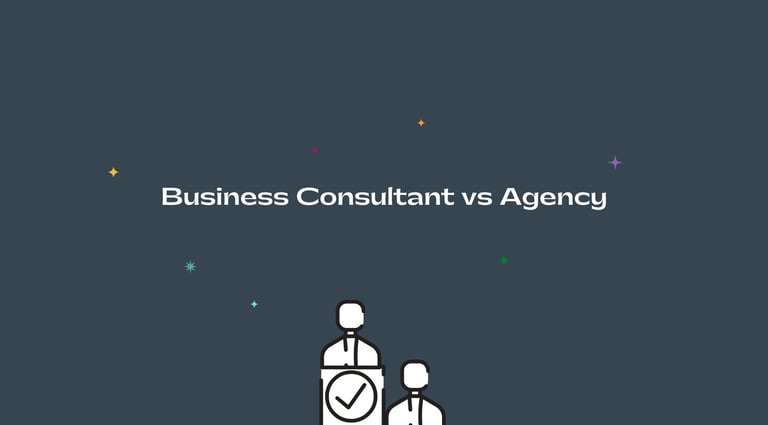

Business Consultant vs Agency
When seeking external help, it's important to decide whether you need a full-service agency or a specialized consultant.
Full-service agencies offer a broad range of services and can manage comprehensive projects from start to finish. They are ideal for large-scale initiatives that require coordination across multiple functions.
On the other hand, specialized consultants focus on specific areas such as strategy, operations, IT, finance, or marketing.
If your needs are more focused, hiring a specialized consultant can provide deeper expertise and more personalized attention to your particular issues.
By clearly defining your objectives, you can narrow down your options and select a consultancy that is well-equipped to meet your needs.
This will ensure that you get the most value from your investment and achieve your business goals effectively.
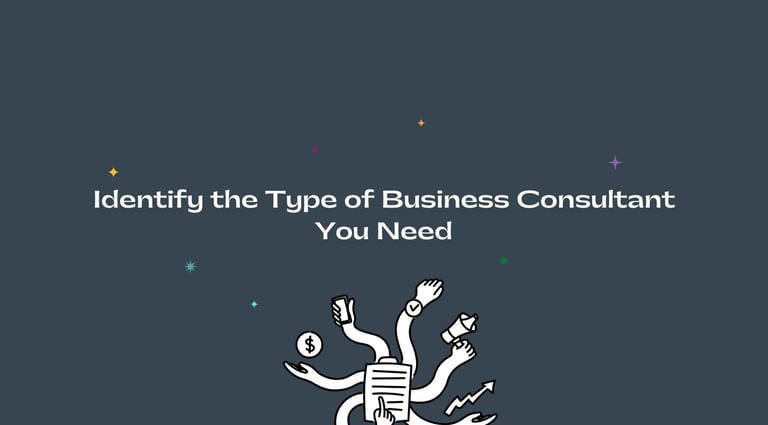

Identify the Type of Business Consultant You Need
Different consultancies specialize in various aspects of business.
Identifying which type aligns with your objectives will help you find the most suitable partner to address your specific needs.
Here are the main types of consultants to consider:
Strategy Consultants
Strategy consultants are ideal for high-level business planning and long-term vision.
They help organizations define their strategic direction, set clear objectives, and develop plans to achieve them.
Their expertise includes market analysis, competitive positioning, and business model innovation.
If you need to realign your business strategy, enter new markets, or plan for sustainable growth, a strategy consultant like ToAsia.biz can provide the guidance and frameworks necessary to succeed.
Operations Consultants
Operations consultants focus on improving internal processes and workflows.
They analyze current operations, identify inefficiencies, and recommend changes to enhance productivity and reduce costs.
Their areas of expertise include supply chain management, process optimization, quality control, and lean manufacturing.
If your goal is to streamline operations, improve efficiency, or reduce operational costs, an operations consultant can help you achieve significant improvements.
IT Consultants
IT consultants specialize in technology-related needs, from infrastructure to software solutions.
They can assist with digital transformation, IT strategy, cybersecurity, and system integration.
IT consultants are crucial for businesses looking to implement new technologies, upgrade existing systems, or improve their overall IT infrastructure.
Financial Consultants
Financial consultants help manage financial planning, investment strategies, and risk management.
They offer expertise in areas such as budgeting, financial forecasting, capital raising, and mergers and acquisitions.
Financial consultants can also provide advice on tax planning, asset management, and financial restructuring.
If you need to improve your financial health, develop a robust financial strategy, or navigate complex financial transactions, a financial consultant can provide the necessary expertise.
Marketing and growth Consultants
Growth and marketing consultants focus on market expansion, branding, and customer acquisition strategies.
They help businesses identify target markets, develop marketing plans, and execute campaigns to increase brand awareness and drive sales.
Their services include market research, digital marketing, social media strategy, and content marketing.
If your objective is to grow your customer base, enhance your brand presence, or launch new products, a marketing and growth consultant can offer valuable insights and strategies.
Customer Support Consultants
Customer support consultants work to enhance customer service and retention.
They analyze customer service processes, identify areas for improvement, and implement best practices to ensure customer satisfaction.
Their expertise includes customer relationship management (CRM), service quality assessment, and customer feedback analysis.
If you aim to improve customer loyalty, resolve service issues, or build a customer-centric culture, a customer support consultant can help you achieve these goals.
Human Resources Consultants
HR consultants assist with managing human capital and improving HR functions.
They offer services in areas such as talent acquisition, employee training and development, performance management, and organizational design.
HR consultants can also help with compliance issues, employee relations, and compensation and benefits planning.
If you need to attract and retain top talent, enhance employee performance, or navigate HR challenges, an HR consultant is an invaluable resource.
Compliance and Legal Consultants
Compliance and legal consultants ensure that your business adheres to regulatory requirements and industry standards.
They guide compliance programs, risk assessments, and legal issues related to business operations.
These consultants are essential for businesses operating in heavily regulated industries or facing legal challenges.
If your objective is to ensure regulatory compliance, mitigate legal risks, or handle specific legal matters, a compliance and legal consultant can offer expert advice.
Change Management Consultants
Change management consultants help organizations navigate through significant transformations, such as mergers, acquisitions, or organizational restructuring.
They focus on minimizing disruption, ensuring smooth transitions, and achieving desired outcomes. Their expertise includes stakeholder engagement, communication strategies, and training programs.
If your business is undergoing major changes and you need to manage the human and operational aspects effectively, a change management consultant can guide you through the process.
Sustainability Consultants
Sustainability consultants assist businesses in adopting sustainable practices and achieving environmental goals.
They help develop sustainability strategies, implement green initiatives, and ensure compliance with environmental regulations.
Their services include energy efficiency, waste management, and corporate social responsibility (CSR) programs.
By identifying the type of consultant that aligns with your specific needs, you can ensure that you find the right partner to help you achieve your business objectives effectively.
Each type of consultant brings specialized knowledge and experience to address distinct areas of your business, driving improvements and delivering tangible results.


Assess the Business Consultant's Track Record and Credentials
When selecting a business consultancy, it's crucial to thoroughly assess their track record and credentials to ensure they are the right fit for your needs.
Here are the key factors to consider:
Specialization
Ensure the consultancy specializes in the areas you need help with.
A consultancy's specialization indicates their depth of knowledge and experience in particular domains. For instance, if you need help with digital transformation, look for consultants with a strong background in IT and technology.
If your focus is on operational efficiency, choose a consultancy known for its operations management expertise.
Specialization ensures that the consultants have a thorough understanding of the specific challenges and opportunities within that field, leading to more effective and targeted solutions.
Experience
Examine the consultancy’s years of experience and the industries they have worked in.
Experienced consultants bring a wealth of knowledge gained from working with various clients and encountering diverse business challenges.
They can leverage this experience to provide insights and strategies that are both innovative and practical.
It's beneficial to select a consultancy that has worked in your industry or in similar sectors, as they will be familiar with the specific dynamics and competitive landscape you operate in.
Reputation
Take the time to research the firm’s reputation in the industry.
Online reviews, recommendations from colleagues, awards, and recognitions can provide valuable insights into their professionalism and quality of work.
A consultancy with a solid reputation is likely to deliver high-quality services consistently.
Portfolio and Track Record
Request case studies, client testimonials, and success stories to gauge the consultancy’s past performance.
A strong portfolio showcases the consultancy's ability to deliver tangible results and adds credibility to their claims.
Look for detailed case studies that highlight their problem-solving approach, the strategies they implemented, and the outcomes achieved.
Client testimonials and references provide first-hand accounts of the consultancy’s effectiveness, professionalism, and ability to meet or exceed client expectations.
This information helps you understand the consultancy’s strengths and how they have helped other businesses succeed.
Familiarity with Your Specific Business Challenges and Industry Nuances
Ensure the consultancy understands your specific business challenges and industry nuances.
Each industry has its unique set of challenges, regulations, and market dynamics. A consultancy familiar with these aspects can offer more relevant and tailored advice.
During your initial conversations, assess how well the consultants understand your business context.
Do they ask insightful questions?
Do they show a genuine interest in your company’s goals and pain points?
A consultancy that demonstrates a deep understanding of your industry will be better equipped to provide solutions that are not only effective but also sustainable in the long run.
Flexibility and Adaptability
Assess whether the consultancy is flexible and adaptable to your specific needs and changes that may arise during the project.
Business environments can be dynamic, and the ability to pivot and adjust strategies is crucial for achieving desired outcomes.
Cultural Fit
The consultancy’s culture and values should align with your organization’s. A strong cultural fit can lead to smoother collaboration and better results.
Ensure that their working style and values resonate with your company’s ethos.
Communication Skills
Effective communication is key to a successful consulting engagement.
The consultants should be good listeners and communicators, capable of conveying their ideas clearly and working collaboratively with your team.
Pay attention to how they interact during initial meetings and whether they understand and address your concerns effectively.
Client Involvement
Consider how the consultancy involves you and your team in the process.
A good consultant should see you as a partner, involve you in key decisions, and build capabilities within your organization to ensure a lasting impact.
By carefully assessing these factors, you can select a consultancy with the right expertise, experience, and approach to help your business overcome challenges and achieve its goals.
This thorough evaluation ensures that you make an informed decision, maximizing the value of your investment in consulting services.
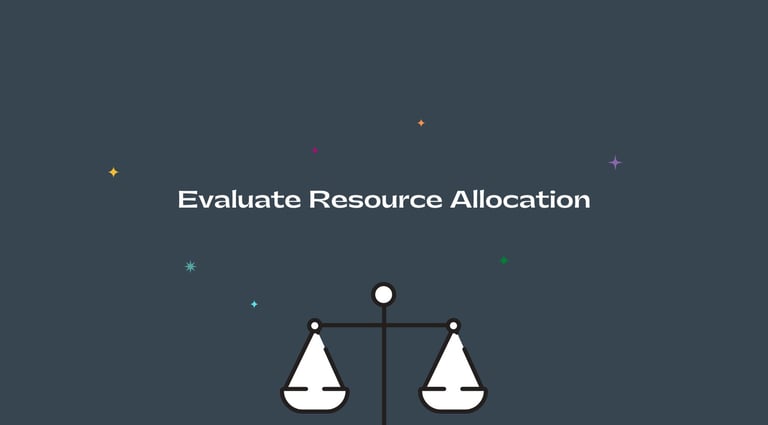

Evaluate Business Consultant's Resource Allocation
Evaluating how a consultancy allocates resources is crucial to ensuring they can meet your project’s requirements effectively.
Understanding their approach to human resources, technical support, and project management will give you insights into their capability to deliver successful outcomes. Here’s what to consider:
Human Resources: Expertise and Experience
Assessing the expertise and experience of the team members assigned to your project is one of the most critical aspects of resource allocation.
It's essential to understand who will be working on your project and their roles and responsibilities.
Identifying key team members and ensuring they have a mix of senior consultants and specialists with the right skills and knowledge for your project is crucial.
Looking into the backgrounds of the consultants, including their previous work, industry experience, and any relevant certifications or qualifications, is also important.
Experienced consultants bring valuable insights and can navigate complex challenges more effectively.
Additionally, asking for references or testimonials from previous clients helps gauge the effectiveness and professionalism of the consultants, providing confidence in their ability to deliver results for your business.
Technical Support: Capabilities and Tools
Technical support is another vital component of resource allocation.
The consultancy should possess the necessary technical capabilities and tools to support your project.
Assessing the consultancy’s proficiency with the technologies and tools relevant to your project is crucial.
For instance, if you are undertaking a digital transformation, ensure they are well-versed in the latest digital tools, software, and platforms.
Evaluating their technical infrastructure to ensure they can handle the project’s demands is also important.
This includes robust IT systems, secure data management practices, and reliable communication tools.
Furthermore, look for a consultancy that uses innovative approaches and state-of-the-art technology to provide solutions.
Their ability to leverage advanced tools can significantly impact the efficiency and effectiveness of their services.
Project Management: Structured Approach
Effective project management is essential for the successful execution of any consulting engagement.
A structured approach with clear timelines and deliverables ensures that the project stays on track and meets your objectives.
Understanding the consultancy’s project management methodology, whether they use Agile, Waterfall, or another approach, is important to ensure it aligns with your project needs and organizational culture.
Requesting a detailed project plan outlining the phases of the project, key milestones, deliverables, and timelines demonstrates their commitment to transparency and accountability.
Evaluating how the consultancy plans to communicate progress, handle issues, and keep you informed throughout the project is also crucial.
Regular updates and clear communication channels are indicators of a well-managed project.
Assessing their approach to risk management is important, as a good consultancy will identify potential risks early, develop mitigation strategies, and ensure that any issues are addressed promptly to avoid project delays or failures.
Finally, look for processes that ensure the quality of deliverables, including regular reviews, feedback mechanisms, and continuous improvement practices to ensure the project meets your standards and expectations.
Resource Availability
Ensure that the consultancy has sufficient resources available to dedicate to your project.
Overcommitted consultants may struggle to provide the attention and effort needed for your success.
Flexibility
The ability to adapt to changing project requirements and unexpected challenges is crucial.
Assess whether the consultancy can be flexible and responsive when adjustments are needed.
Client Involvement
Determine how the consultancy involves your team in the project.
Collaborative approaches that include your input and feedback can lead to better outcomes and ensure that the solutions are well-integrated into your business.
Performance Metrics
Ask about the metrics they use to measure project performance and success.
Clear metrics and KPIs help in tracking progress and evaluating the effectiveness of the consultancy’s efforts.
By carefully evaluating how a consultancy allocates its resources—human resources, technical support, and project management—you can ensure they are well-equipped to handle your project’s demands and deliver successful outcomes.
This comprehensive assessment will help you make an informed decision and choose a consultancy that can truly add value to your business.
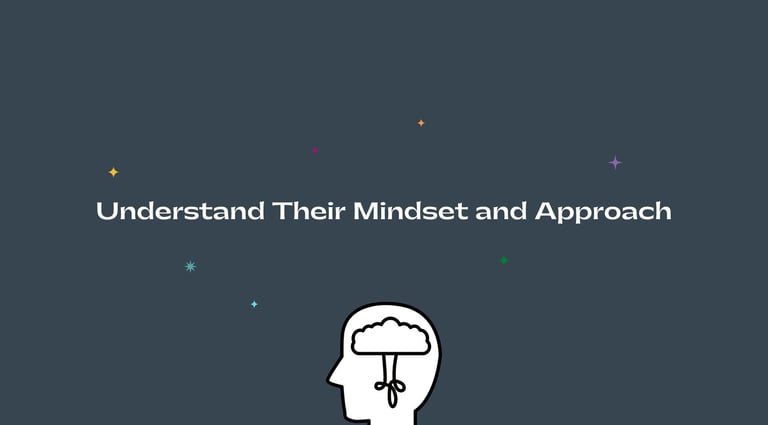

Understand Business Consultant Mindset and Approach
Evaluating a consultancy’s mindset and approach is crucial for ensuring that their working style aligns with your business’s values and needs.
The right consultancy should not only have the technical skills and experience but also the right mindset to prioritize your goals and collaborate effectively. Here’s what to consider:
Client-First Mindset
A client-first mindset means that the consultancy prioritizes your needs and goals above all else.
This approach is vital for a successful partnership.
To evaluate if a consultancy has a client-first mindset, assess whether the consultancy offers tailored solutions rather than one-size-fits-all approaches.
They should take the time to understand your specific challenges and design strategies that are uniquely suited to your business.
During initial meetings and discussions, observe how well the consultants listen to your concerns and objectives.
They should demonstrate genuine interest and seek to fully understand your business before proposing solutions.
A client-first consultancy will maintain open lines of communication, keeping you informed at every stage of the project.
They should be transparent about progress, challenges, and changes, ensuring that you are always in the loop.
Analytical Problem Solver
Consultancies should be adept at identifying problems and creating effective solutions.
An analytical problem solver will use data-driven approaches to diagnose issues and develop actionable strategies.
Evaluate the consultancy’s ability to thoroughly analyze your business operations, market conditions, and internal processes.
They should be able to pinpoint the root causes of issues rather than just addressing symptoms.
Look for consultants who propose innovative and practical solutions.
They should be able to think creatively and apply new ideas to solve your business problems effectively.
Ensure that the consultancy’s recommendations are backed by data and proven methodologies.
They should provide clear rationales for their suggestions, supported by research and analysis.
Business-Level Planning
Comprehensive business-level planning is essential for aligning consulting efforts with your strategic objectives.
A consultancy should offer detailed planning that supports your long-term goals.
Assess how well the consultancy’s plans align with your business objectives.
They should consider your company’s mission, vision, and strategic priorities when developing their plans.
A good consultancy will take a holistic view of your business, considering all relevant factors, including market trends, competitive landscape, internal capabilities, and stakeholder interests.
Evaluate whether the consultancy focuses on sustainable, long-term success rather than just short-term fixes. Their strategies should aim to build lasting value and competitive advantage for your business.
Passion for Your Business
Passion and genuine interest in your business are key indicators of a consultancy’s commitment to your success.
Consultants who are passionate about their work are more likely to go the extra mile to achieve the best outcomes.
During interactions, observe the level of enthusiasm and engagement the consultants display.
They should be eager to learn about your business and show a proactive attitude in addressing your needs.
Passionate consultants are committed to delivering tangible results.
They should demonstrate a strong drive to help your business succeed and show a willingness to invest the necessary time and effort.
Integrity and Transparency
Look for consultants who value honesty and transparency.
They should be upfront about their capabilities, limitations, and any potential conflicts of interest.
Trust is a crucial component of a successful consulting partnership.
By thoroughly understanding a consultancy’s mindset and approach, you can ensure that they are aligned with your business’s values and objectives.
This alignment is critical for a productive and successful consulting engagement that drives meaningful results for your organization.
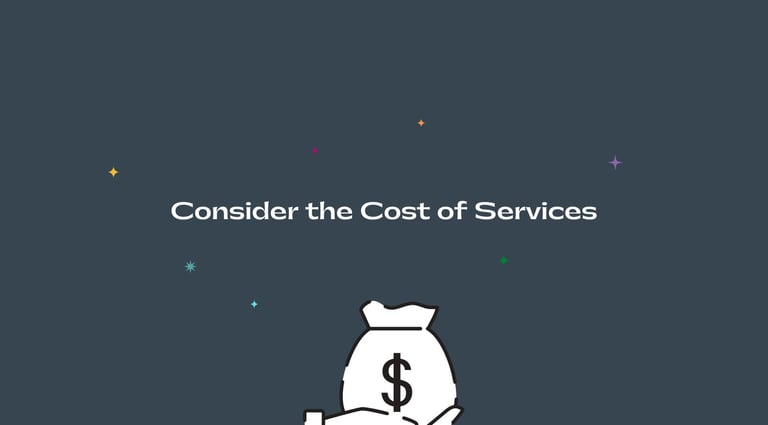



Alan Wong is founder of ToAsia.biz and a startup mentor with over 20 years of professional experience managing software, Saas and consulting services MNCs.
About Author
Copyright © 2026 ToAsia.biz


We lead your business to Asia
Our Business Growth Experts help SaaS businesses achieve growth in Asia and become profitable FAST.
Send us a message via WhatsApp
